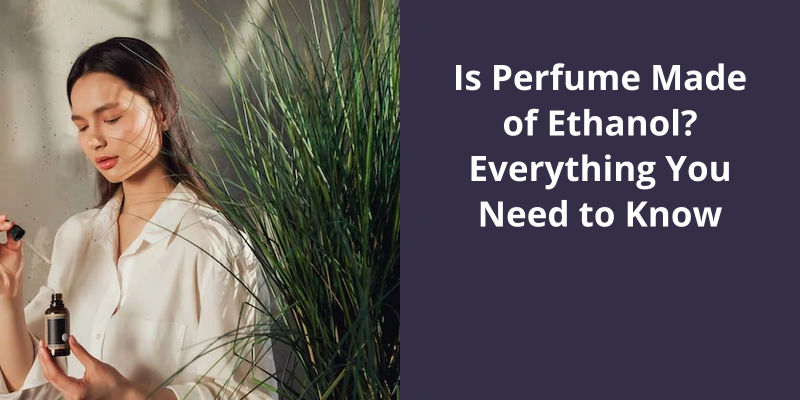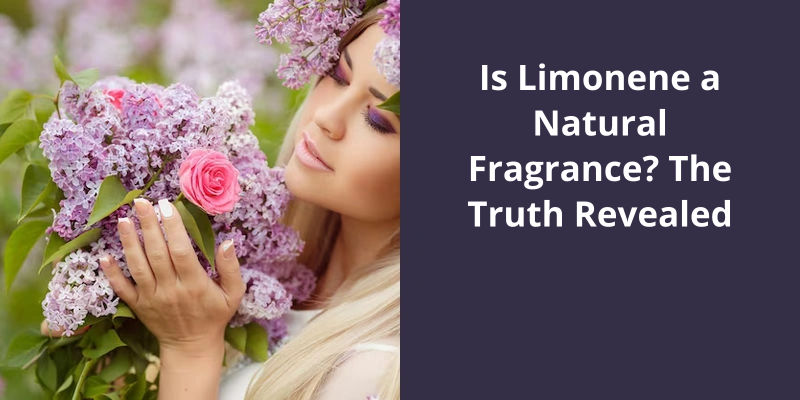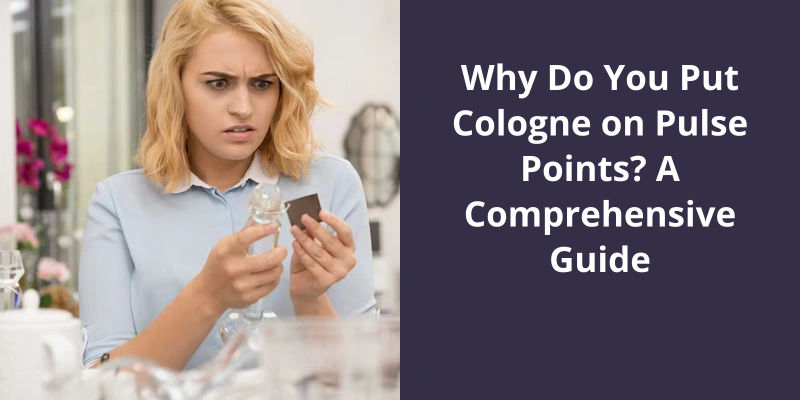Yes, perfume is often made with ethanol. Ethanol is a type of alcohol that is typically used as a solvent in making perfume. This means that it carries the scent and helps to disperse it into the air when it’s applied. Some of the scent compounds in perfume are too strong or volatile to be used on their own, so they are dissolved in ethanol to make them safe for use on skin. Ethanol also helps the perfume to evaporate, spreading the scent into the air. However, not all perfumes use ethanol; some use oil or other substances instead.

What Kind of Alcohol Is in Perfume?
This type of alcohol is commonly referred to as ethanol and is derived from natural sources such as grains or fruit. However, it’s important to note that not all perfumes contain ethanol as their primary alcohol. Some perfumes may also utilize other types of alcohols, such as isopropyl alcohol or denatured alcohol.
The use of ethanol in perfumes serves several purposes. Firstly, it acts as a solvent, helping to dissolve the various fragrance ingredients and blend them together. This allows for a more even distribution of the fragrance when applied to the skin. Additionally, ethanol helps to evaporate the fragrance from the skin, allowing it to be detected by the nose.
Ethanol evaporates more quickly than other types of alcohols, which can lead to a shorter lifespan on the skin.
In terms of safety, ethanol in perfumes is considered safe for most individuals when used in normal amounts. However, some people may be more sensitive to alcohol and may experience skin irritation or dryness. It’s always advisable to perform a patch test before applying a perfume directly to the skin, especially if you’ve a known sensitivity to alcohol.
Ethanol is safe for most individuals, but it’s always wise to perform a patch test and be aware of any potential sensitivities or reactions.
When it comes to the question of whether perfume alcohol is the same as rubbing alcohol, the answer is no. While rubbing alcohol is commonly known as isopropyl alcohol, perfumer’s alcohol is ethanol. The distinction between these two types of alcohol is crucial, as perfumer’s alcohol is specifically designed for use in creating high-quality fragrances.
Is Perfume Alcohol the Same as Rubbing Alcohol?
Perfume alcohol and rubbing alcohol may seem similar at first glance, but they aren’t the same. When it comes to making perfume, you need something much stronger than rubbing alcohol. This is where perfumers alcohol comes into play.
The main difference between these two types of alcohol lies in their chemical composition. Ethanol, which is found in perfumers alcohol, is derived from plant sources such as fermented grains or fruits. On the other hand, isopropyl alcohol, the main component of rubbing alcohol, is typically produced through the chemical processing of propylene, a petroleum-derived compound.
The choice of using perfumers alcohol in perfume production is primarily due to it’s scent-masking properties. Ethanol has a relatively mild smell compared to isopropyl alcohol, making it more suitable for blending with various fragrances.
The Process of Making Perfumers Alcohol From Fermented Grains or Fruits
The process of making perfumers alcohol involves fermenting grains or fruits to produce ethanol, which is then used as a solvent to create perfumes. The fermentation process converts sugars in the grains or fruits into alcohol, which is collected and purified to create a high-proof ethanol. This ethanol is known as perfumers alcohol and is essential for blending and diluting fragrance oils in the perfume-making process. The purity and quality of the alcohol play a crucial role in the overall scent and longevity of the perfume.
The alcohol percentage in perfume plays a crucial role in preserving and enhancing the fragrance. Whether it be grain alcohol or organic grain alcohol, the main consideration should be it’s cosmetic grade and high ethanol content of 95% or above. This ensures that the alcohol effectively carries and disperses the perfume’s aromatic compounds, resulting in a long-lasting and well-rounded scent.
What Is the Best Alcohol Percentage for Perfume?
The alcohol percentage in perfume plays a crucial role in it’s formulation and overall performance. When it comes to choosing the best alcohol percentage for perfume, most perfumers and fragrance experts recommend using grain alcohol or organic grain alcohol. However, it’s important to note that the type of alcohol used, whether it’s grain or not, isn’t the main determinant for perfumery purposes.
What truly matters is the quality of the alcohol and it’s ethanol content. For perfumery, the alcohol used should be cosmetics grade and not diluted, with an ethanol content of 95% or higher.
It’s derived from organic grains, making it a popular choice for those seeking a natural or organic fragrance option.
However, it’s important to note that the choice between grain alcohol and non-grain alcohol ultimately depends on personal preference and specific fragrance formulation requirements.
What truly matters is selecting an alcohol that effectively dissolves and disperses the fragrance oils without introducing any unwanted impurities or dilutions.
Conclusion
This combination creates a volatile solution that evaporates upon contact with the skin, allowing the fragrance to be released gradually. Ethanol serves as a carrier for the fragrance and aids in it’s dispersion, ensuring that it’s evenly distributed. It also acts as a preservative, extending the shelf life of the perfume. However, it’s worth noting that there are alternative methods of creating perfumes, such as oil-based ones, which don’t use ethanol. These perfumes utilize carrier oils or other non-alcoholic solvents to dilute the fragrance concentrate.





